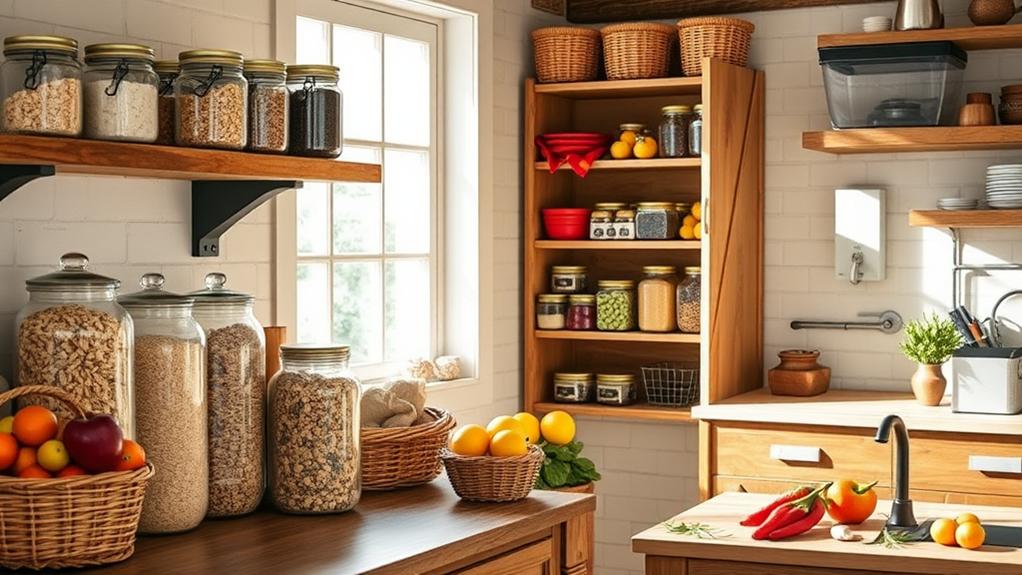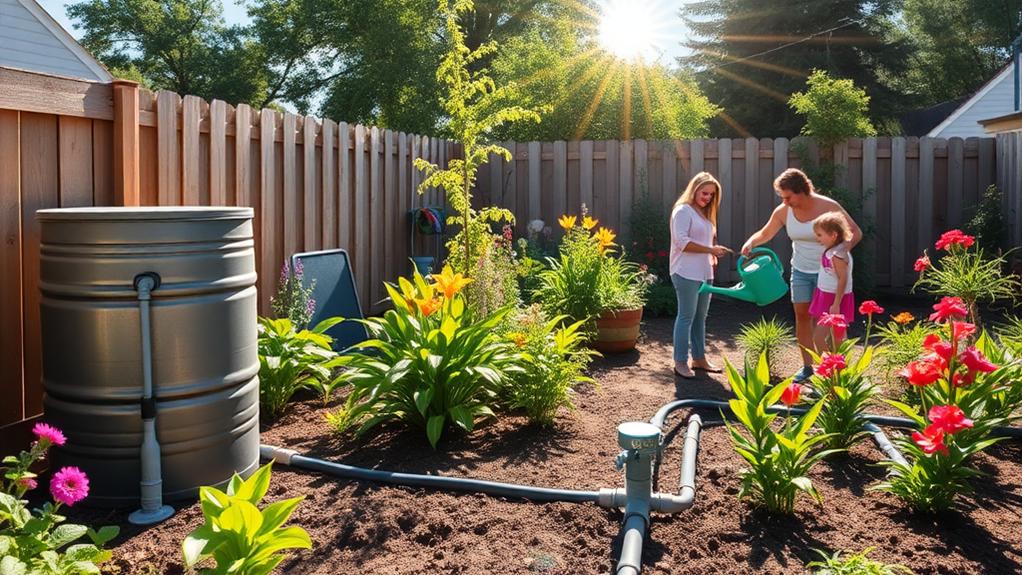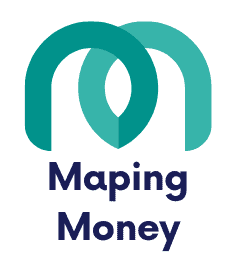10 Essential House Saving Tips for Homeowners
As a homeowner, you can save considerably by adopting smart money habits. Start by upgrading to energy-efficient appliances and using programmable thermostats to trim your energy bills. Keep an eye on your water usage with low-flow fixtures and mindful habits. Don't underestimate budgeting; tracking your expenses helps identify savings opportunities. Renting out a spare room or selling unused items can boost your income. Finally, routinely review your finances to discover better rates or assistive programs available to you. If you're enthusiastic to uncover more practical tips, there's a wealth of information just ahead.
Key Takeaways
- Upgrade to energy-efficient appliances and use programmable thermostats to significantly reduce electricity costs and improve energy management.
- Implement water conservation techniques, such as low-flow showerheads and rainwater collection, to minimize water usage and lower utility bills.
- Keep your refrigerator full and use airtight containers to extend food freshness, reducing waste and grocery expenses.
- Track monthly expenses with budgeting tools to identify savings opportunities and adhere to a structured financial plan.
- Explore additional income sources, such as renting out a spare room or utilizing gig economy opportunities, to boost household income.
Energy Efficiency Improvements

Often, homeowners overlook the impact of energy efficiency improvements on their monthly bills. By making a few strategic upgrades, you could greatly reduce your energy use and save you money in the long run. For instance, upgrading to energy-efficient appliances can cut electricity usage by 10% to 50%. Imagine how much that could lower your utility bills!
Installing a programmable thermostat is another smart move. It can help you save about $180 annually by optimizing your heating and cooling based on when you're actually home. Additionally, switching to compact fluorescent light bulbs (CFLs) can save up to $30 over their lifetime since they use about 75% less energy than traditional incandescent bulbs.
Don't forget about insulation! Properly insulating your home can lower heating and cooling costs by 20% to 30%, potentially saving you hundreds each year. Finally, regularly cleaning or replacing HVAC filters can improve system efficiency by 5% to 15%, further reducing energy consumption.
Smart Appliance Usage

Smart appliance usage can lead to substantial savings on your utility bills. Start by swapping your full-size oven for a toaster oven when preparing smaller meals; you can save up to two-thirds of the energy. Regularly cleaning your HVAC filters boosts system efficiency by 5-15%, cutting down energy consumption and extending the lifespan of your unit.
Don't forget about phantom energy – it's sneaky! Using power strips for your electronics helps you eliminate this waste, potentially saving you $100 to $200 every year. Adjust your water heater to 120 degrees Fahrenheit; for every 10 degrees you lower, you can save 3% to 5% on heating costs and reduce the risk of scalding.
Cost-Effective Food Storage

When it comes to saving money and reducing waste, mastering cost-effective food storage is essential for every homeowner. By employing a few practical strategies, you can keep your groceries fresh longer and save cash.
| Strategy | Benefits | Tips |
|---|---|---|
| Keep Your Fridge Full | Retains cold temperatures | Fill with solid items like water bottles |
| Use Airtight Containers | Extends freshness of leftovers | Seal tightly to prevent air exposure |
| Freeze Sale Items | Saves money and extends shelf life | Label with dates for easy tracking |
| Group Similar Items | Optimizes space and accessibility | Keep like items together for easy access |
By utilizing airtight containers, you'll greatly reduce food waste. Freezing meats bought on sale not only allows you to enjoy them later but also cuts down grocery trips. Don't forget to label everything with dates to keep track of freshness.
Implementing these cost-effective food storage techniques can lead to a more organized kitchen, saving you money while enjoying the freedom of having fresh meals at your fingertips. Start today, and watch both your food and wallet thrive!
Water Conservation Techniques

Water conservation techniques are essential not just for protecting the environment, but also for reducing your utility bills. You can easily cut down on water usage with a few simple adjustments. For starters, consider installing low-flow showerheads, which can reduce your water usage by up to 50%. This upgrade not only saves water but also helps you save money on your monthly bills without sacrificing comfort.
When it comes to washing dishes, skip the pre-rinse. Modern dishwashers are designed to clean effectively without the extra five gallons of water you'd waste rinsing beforehand. Additionally, watering your grass in the early morning minimizes evaporation, promoting a healthier lawn while conserving thousands of gallons each year.
Instead of using a hose to clean your driveway, grab a broom! You'll save approximately 80 gallons of water each time. Finally, think about collecting rainwater in barrels for your garden. This practice reduces reliance on municipal water sources, allowing you to save money while nurturing your plants sustainably. By adopting these water conservation techniques, you'll make a positive impact on your wallet and the planet.
Budgeting and Expense Tracking

Managing your budget and tracking expenses effectively can lead to significant savings and financial peace of mind. Start by monitoring your monthly expenses for at least one month. Categorize your spending into essential and non-essential items to understand your habits and pinpoint areas for potential savings.
Implement the 50/30/20 budgeting rule: allocate 50% of your income to needs, 30% to wants, and 20% to savings or debt repayment. This approach helps maintain financial balance while prioritizing your savings. Utilize budgeting tools or apps to streamline your expense tracking and automate contributions to your savings account, ensuring you stick to your monthly limits.
Setting specific savings goals is vital. Aim to save 25% to 30% of your home's purchase price for down payments and other costs, which will help you avoid private mortgage insurance (PMI). Regularly review your financial progress by breaking larger objectives into smaller milestones. This not only keeps you motivated but also holds you accountable as you work towards achieving your budgetary targets. By mastering budgeting and expense tracking, you can enjoy the freedom that comes with financial stability.
Increasing Household Income

Increasing your household income can considerably enhance your financial stability and open up new opportunities. There are various strategies you can explore to boost your earnings and increase the value of your financial situation.
- Ask for a raise during your performance review; studies show that negotiating your salary can lead to an average increase of 10%.
- Explore side gigs in the gig economy, projected to reach $455 billion by 2023, allowing you to find flexible opportunities that fit your schedule.
- Rent out spare rooms on platforms like Airbnb, potentially generating an average annual income of $24,000, depending on your location and occupancy rates.
- Leverage your skills or hobbies by selling handmade items online or offering services like tutoring or consulting, which can diversify your income sources and provide extra income.
Debt Management Strategies

Boosting your household income is just one part of achieving financial stability; managing your debt is equally important. Start by prioritizing high-interest debts, as they can drain your finances and increase borrowing costs when you're ready for a mortgage. Aim to maintain a debt-to-income (DTI) ratio below 43%. This makes you more attractive to lenders and helps secure better mortgage rates.
Consider adopting the debt avalanche method, which focuses on paying off debts with the highest interest rates first. This strategy not only saves you money in the long run but also accelerates your journey to financial freedom.
Regularly review and adjust your budget to prevent new debt from creeping in while you're focused on repayment. This discipline is key to maintaining your financial health.
Utilizing Assistance Programs

Steering the path to homeownership can feel intimidating, but utilizing assistance programs can make it considerably easier. Down payment assistance programs often provide grants or loans that can cover a portion or even all of your down payment and closing costs. This financial support can open doors to homeownership that might otherwise remain closed.
Here are some key points to evaluate when exploring these programs:
- Many states offer tailored down payment assistance programs for first-time homebuyers, veterans, or low-income families.
- Some programs don't require repayment, allowing you to benefit from financial support without incurring additional debt.
- Eligibility criteria may vary based on income, credit score, and home location, so be sure to review them thoroughly.
- Completing homebuyer education courses can enhance your understanding of the process and may be a requirement for certain assistance programs.
Creative Income Generation

With a little creativity, homeowners can access new income streams that help offset mortgage costs or fund home improvements. Consider renting out your spare room through platforms like Airbnb; hosts earn an average of $924 per month! Or, if you have extra storage space, apps like Neighbor let you rent out your garage or basement for $50 to $200 monthly.
Take advantage of your property by offering it for filming or events. Some homeowners make upwards of $5,000 per day for film shoots! Additionally, participating in local farmers' markets by selling homemade goods or crafts can provide a steady income stream, often yielding hundreds each market day. You can also rent out parking spaces during busy events, which can net you $10 to $50 daily.
Here's a quick overview of creative income generation options:
| Income Source | Potential Earnings | Notes |
|---|---|---|
| Rent out spare room | $924/month | Airbnb, Vrbo |
| Rent storage space | $50 – $200/month | Neighbor app |
| Film shoots/events | Upwards of $5,000/day | Contact local production companies |
| Farmers' markets | Hundreds per market day | Sell homemade goods or crafts |
| Rent parking spaces | $10 – $50/day | Great for busy areas/events |
Explore these options and watch your income grow!
Regular Financial Reviews

Regular financial reviews are essential for homeowners who want to stay on top of their budgets and savings goals. By regularly evaluating your finances, you can track your income, expenses, and savings progress, ensuring everything aligns with your financial objectives. It's a proactive step toward financial freedom.
Consider incorporating these practices into your financial reviews:
- Analyze your monthly mortgage to see if refinancing options could lower your payments.
- Review utility bills quarterly to find potential savings by switching providers or cutting unnecessary services.
- Keep an eye on outstanding debts and their impact on your debt-to-income ratio, vital for maintaining favorable mortgage eligibility.
- Utilize budgeting tools or apps to categorize your expenses, helping you spot non-essential spending that can be trimmed.
Setting specific dates for your financial reviews—whether monthly or quarterly—creates accountability and keeps you focused on your savings goals. This regular practice will empower you to make informed decisions, ultimately enhancing your financial health and freeing up resources for home-related costs. Embracing this habit can transform your financial landscape and lead to significant savings over time.







